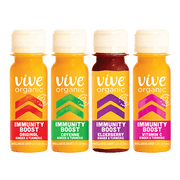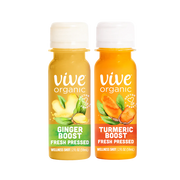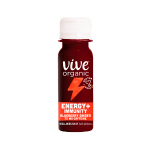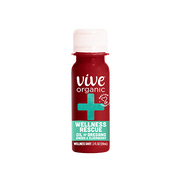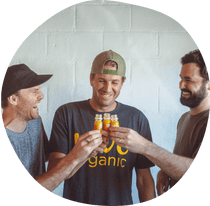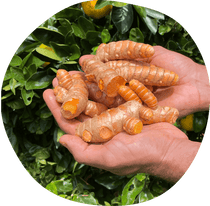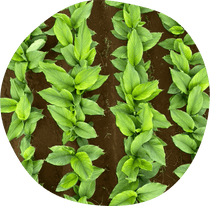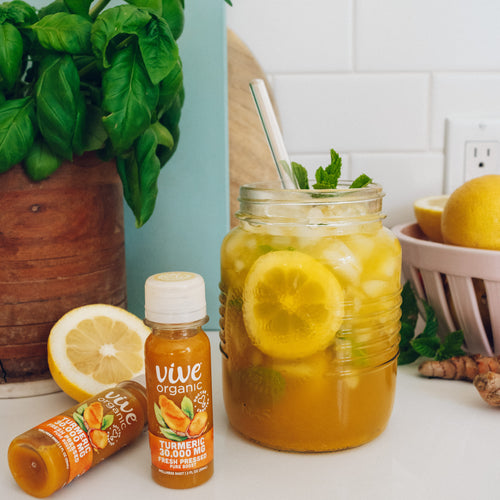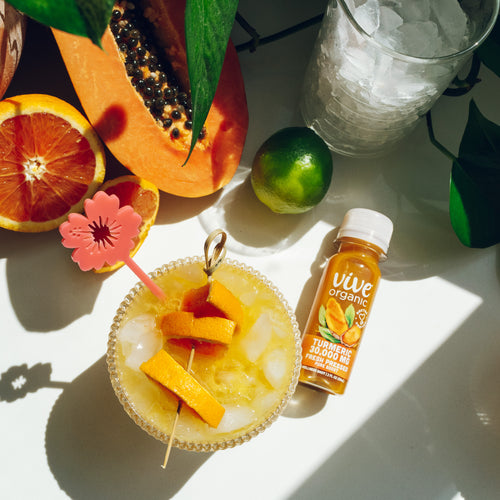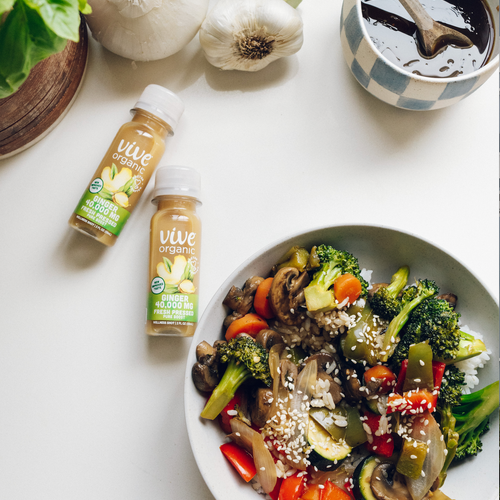After a tough workout at the gym, hiking on a new trail, or working in the garden all afternoon, it's common to feel muscle soreness. Sore muscles can slow you down and make everyday tasks uncomfortable. Natural remedies are worth looking into as a choice to support healing and promote overall health. This article shares 8 simple and natural ways to see what helps sore muscles recover.
This article explores some factors including hydration, sleep, proper physical support, your dietary intake, and other ways that may support muscle health and recovery.
What Causes Muscle Soreness?
Whether your muscle soreness is bearable and mild, or if you are feeling severely sore, it is still likely that you may have overworked your muscles. The positive thing is that there are ways to help sore muscles and lighten the burden.
But first, let's check out what may be causing your muscle soreness. Muscle soreness is often the result of a high-intensity workout, where the activity may have caused tiny tears in your muscle fibers.1,2,3 Many of you may know exactly what this feels like, especially if you have ever been overzealous and pushed a little too hard and too fast at the gym.
The soreness or pain that is associated with these muscle tears is referred to as delayed onset muscle soreness (DOMS).1 Some people may immediately feel sore, while others may not feel the burn until up to 48 hours or later.1-4
Certainly we can all relate to both scenarios. The times when we “feel” an immediate onset of the soreness it is top of mind and obvious, but there are also the times when “out of the blue” we feel so sore a few days after we worked out or overworked our muscles doing routine household tasks, and wonder, “why am I so sore all of a sudden?”
Soreness can often be caused by muscles that need time to heal. Restoring these muscles is important for recovery. Below, we share some simple ways to support muscle repair and help you get on your way to recovery.
8 Ways to Help Sore Muscles
How sore you feel depends on several factors. Your fitness level plays a part—beginners usually experience more pain than those who engage in regular exercise. Drinking enough fluids, giving your muscles a rest, and focusing on a healthy diet may help to tackle that soreness and support healing for your muscles.
1. Nutrition — Make Healthy Selections
Though the temptation may be there to reach for some snack chips and soda or fast food when you are a little under the weather, try to refrain! It is important to continue to nourish your body and support your sore muscles with some nutrient-dense foods during this time. Snacking on healthy foods like blueberries and strawberries may help to support the body since they are so rich in antioxidants and phytonutrients. For mealtime, consider fatty fish, which is rich in omega-3 polyunsaturated fatty acids, including salmon, mackerel, and tuna.3 Plant-based omega-3 fatty acid-rich foods can be found in flaxseed and walnuts.
Though research continues on the exact mechanism of how omega-3 fatty acids affect the inflammatory response, it has been shown that high indexes of Omega-3 fatty acids may positively support better sleep and quicker muscle recovery after exercise.5
Adding some spices like turmeric to your diet, since it contains a natural compound called curcumin, may also be a consideration. Turmeric is a polyphenol that has both antioxidant and anti-inflammatory effects.6
Eating a variety of these foods can strengthen your body’s ability to recover from exercise.
2. Hydration and Electrolyte Balance
Ensuring that you are well hydrated every day, especially if you are engaged in any physical activity, is crucial. Drinking water around the clock can help, and adding extra for losses during activity or hot weather must be factored in.
The American Council on Exercise suggests some general guidelines for drinking water before, during, and after exercise:7
- Drink 17 to 20 ounces of water 2 to 3 hours before you start exercising.
- Drink 8 ounces of water 20 to 30 minutes before you start exercising or during your warm-up.
- Drink 7 to 10 ounces of water every 10 to 20 minutes during exercise.
- Drink 8 ounces of water no more than 30 minutes after you exercise.
Eating a balanced diet that includes fruits and vegetables as well as some dairy can help to provide essential nutrients, including natural sources of electrolytes, vitamins, and minerals.
Depending on your intake of electrolytes like sodium, potassium, and magnesium may help with hydration, help to avoid muscle cramping, and support muscle health. Calcium-rich foods like dairy can provide some great vitamins and minerals as well as protein to support muscle function and health.
3. Gentle Stretching
Be proactive. Some light stretching after a workout can reduce stiffness. Focus on the muscles that feel tight. Simple and gentle movements of your muscles may keep them loose and keep the blood and nutrients circulating. Know your limit and don’t overdo the stretching.
4. Muscle Massage
Gently massaging a sore muscle feels very comforting. A new study shows that this helps muscles heal by changing how genes work. It turns off genes that cause inflammation and switches on genes that promote recovery. This discovery explains why gentle kneading can be so effective for sore muscles.8
5. Hot and Cold Therapy
Sometimes, it is effective to alternate heat and cold treatments, but checking with your HCP to discuss the best treatment for you is advised. The goal is to continue to promote muscle healing by improving circulation, plus it feels good.
6. Get Quality Sleep
Getting enough sleep is one of the best ways to let your muscles recover. During deep sleep, your body repairs tissue. Aim for 7-9 hours nightly and create a relaxing bedtime routine. This is something to work on for the long run!
7. Mindfulness and Relaxation Strategies
Stress can tighten up muscles. Try to adopt a daily routine that includes deep breathing or meditation to relax. Even a few minutes of mindfulness can make you and your muscles feel less tense. Relaxed muscles perform better and may recover faster, too.
8. Supplements
So you may not get in all of the serving sizes from all of the food groups day, which can, over time, lead to some gaps in our nutritional intake.If you feel as if you would be a candidate of taking a dietary supplement, then speak to your healthcare provider before deciding to do that on your own
Key Takeaways
Relieving sore muscles naturally is possible with simple, effective strategies. Incorporating anti-inflammatory foods, staying well hydrated, and using gentle physical approaches like stretching and massage may help to soothe those sore muscles. Remember, if soreness becomes hard to bear or persistent, reach out to your healthcare provider (HCP).
Staying active daily, eating well, sleeping well, and managing your stress can lend to helping to keep you in optimal shape both physically and mentally.
Disclaimer: This blog contains promotional content about our products. The information provided in this blog is for educational and informational purposes only and should not be construed as medical advice. While the nutritional information and health tips shared here are based on published studies and expert insights, they should not replace advice and treatment from a healthcare professional. Always consult a qualified healthcare provider with any questions you may have regarding a medical condition or health objectives.
References
- Hohenauer, Erich, et al. “Partial‐Body Cryotherapy (−135°C) and Cold‐Water Immersion (10°C) after Muscle Damage in Females.” Scandinavian Journal of Medicine & Science in Sports, vol. 30, no. 3, 27 Nov. 2019, pp. 485–495, https://doi.org/10.1111/sms.13593.
- https://www.verywellhealth.com/how-to-get-rid-of-sore-muscles-8701819 Accessed 22 April 2025.
- ISSA. “Muscle Fatigue Symptoms: How to Prevent & Treat Them | ISSA.” Www.issaonline.com, 9 June 2022, https://www.issaonline.com/blog/post/muscle-fatigue-symptoms-how-to-prevent-and-treat-them. Accessed 22 April 2025.
- Godman, Heidi. “Best Ways to Recover from a Muscle Strain - Harvard Health.” Harvard Health, Harvard Health, July 2024, https://www.health.harvard.edu/staying-healthy/best-ways-to-recover-from-a-muscle-strain.
- Wierenga, Kathryn A, and James J Pestka. “Omega-3 Fatty Acids And Inflammation - You Are What You Eat!.” Frontiers for young minds vol. 9 (2021): 601068. doi:10.3389/frym.2021.601068. Omega-3 Fatty Acids And Inflammation – You Are What You Eat! - PMC.
- “7 Health Benefits of Turmeric.” Cleveland Clinic, 10 Nov. 2021, health.clevelandclinic.org/turmeric-health-benefits. https://health.clevelandclinic.org/turmeric-health-benefits Accessed 22 April 2025.
- Familydoctor.org editorial staff. “Hydration for Athletes - Familydoctor.org.” Familydoctor.org, 3 Jan. 2018, familydoctor.org/athletes-the-importance-of-good-hydration/. https://familydoctor.org/athletes-the-importance-of-good-hydration/ Accessed 22 April 2025.
- “Massage’s Mystery Mechanism Unmasked.” Science.org, 2021, www.science.org/content/article/massages-mystery-mechanism-unmasked, https://doi.org/10.1126/article.25572 Accessed 22 April 2025.
